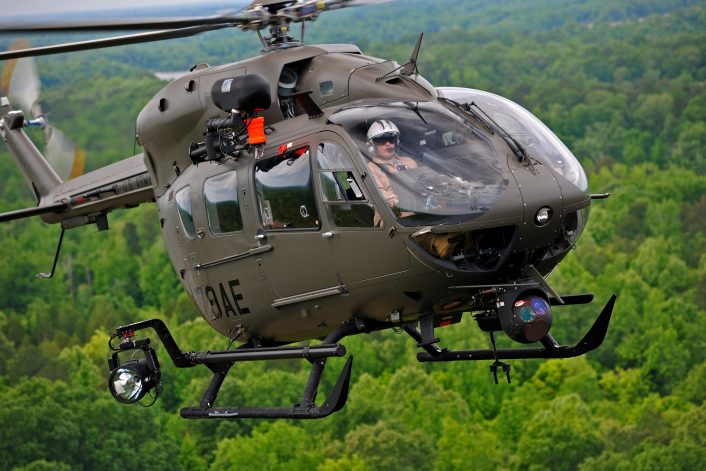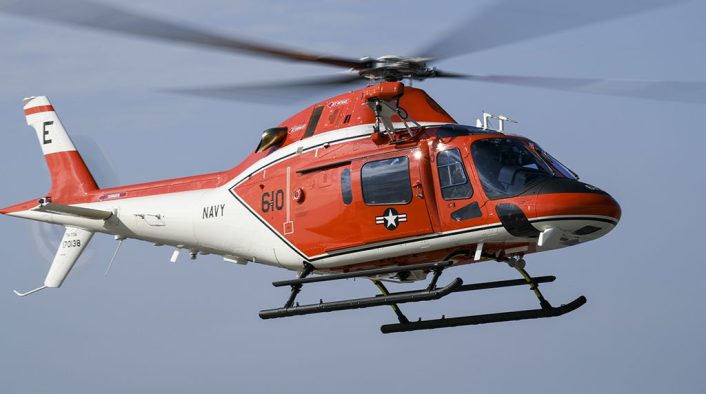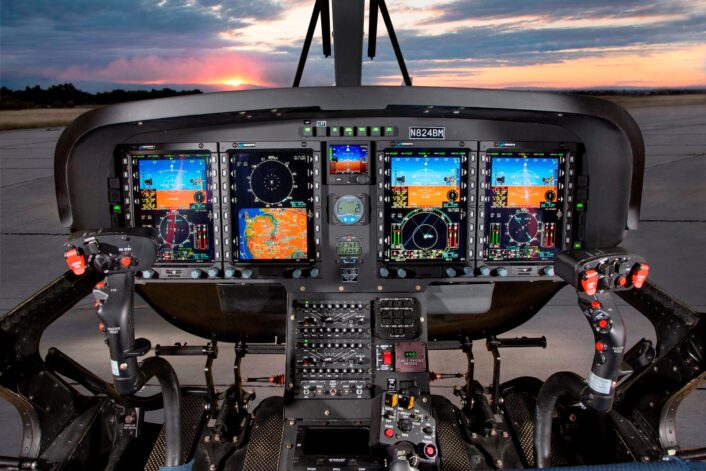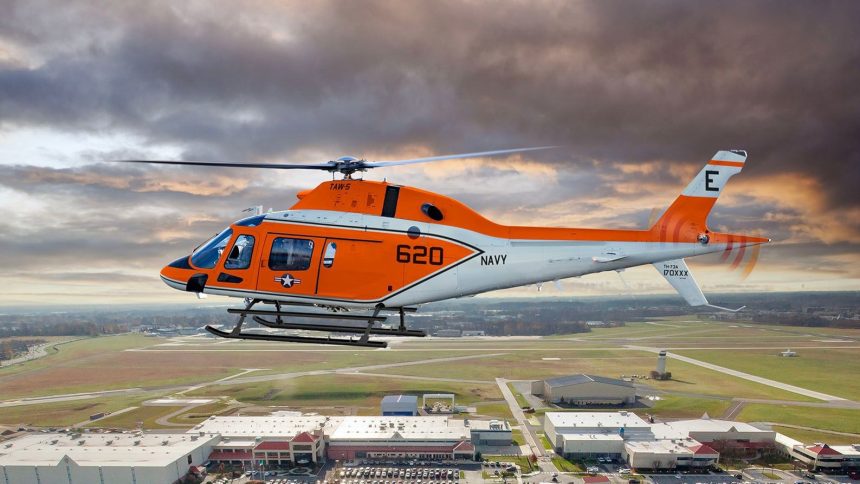Boeing and Leonardo will pursue together the U.S. Army’s Flight School Next contractor-owned, contractor-operated (COCO) contract.
Boeing and Leonardo announced a new partnership to jointly pursue the U.S. Army’s Flight School Next contract, a major program that will define the future of the Army’s rotary-wing pilot training. The collaboration, announced on Oct. 13, 2025, during the Association of the U.S. Army (AUSA) Annual Meeting in Washington, brings together Boeing’s deep experience in Army aviation services with Leonardo’s field-proven AW119T training helicopter.
According to both companies’ press releases, the partnership will offer a contractor-owned, contractor-operated (COCO) solution designed to deliver an efficient, scalable and high-readiness training system for new Army aviators. Boeing will provide systems integration, simulation, and program management expertise, while Leonardo contributes its mature AW119T platform, already in service as the U.S. Navy’s TH-73A Thrasher trainer.
We are pleased to collaborate with @Boeing in pursuing the @USArmy’s Flight School Next (FSN) contractor-owned, contractor-operated service contract.
By combining Boeing’s successful experience in Army rotary-wing aviation and program delivery, with #Leonardo’s proven #AW119T… pic.twitter.com/jtkAvSx7e8
— Leonardo Helicopters (@LDO_Helicopters) October 13, 2025
“We are bringing together two industry leaders to offer the Army a turnkey, innovative approach to rotary-wing training with an integrated, long-term solution that increases aviator proficiency, operational and sustainment efficiencies and delivers measurable value throughout the life of the program,” said John Chicoli, Senior Director for U.S. Army, Marines & Special Operations/Missions at Boeing Global Services.
A Proven Training Platform
Leonardo’s AW119T serves as the core of the proposed training system. The aircraft’s design includes crashworthy fuel systems and seating, and it supports full touchdown autorotations and in-flight emergency training, which are key requirements for military helicopter pilot training.

The single-engine helicopter has accumulated more than 100,000 flight hours, including over 16,000 hours under instrument flight rules (IFR) and 40,000 touchdown autorotations, say both companies, demonstrating its suitability for advanced flight instruction.
Leonardo already sustains a fleet of 130 AW119T aircraft, designated as TH-73 Thrasher, operated by the U.S. Navy near Fort Rucker, Alabama, where the Army’s training helicopters are based. Should the service choose the AW119T, this would allow for immediate logistical synergies and faster responsiveness, exploiting the work done with the Navy.
We’re proud to join forces with @Leonardo_live to pursue the @USArmy‘s Flight School Next training contract. #AUSA2025
By pairing our extensive rotary-wing training expertise with Leonardo’s proven AW119T helicopter, we can offer a modern, efficient, scalable training solution… pic.twitter.com/Tj9uF6rdQh
— Boeing Defense (@BoeingDefense) October 13, 2025
“The AW119T is a proven platform that already supports U.S. military training every day. With more than 100,000 flight hours accumulated and a sustainment network in place in Florida, Leonardo and Boeing are uniquely positioned to deliver immediate capability and long-term value to the Army through Flight School Next,” said Clyde Woltman, CEO of Leonardo Helicopters U.S.
Turnkey, Scalable Training Approach
The joint proposal emphasizes a comprehensive “turnkey” training package, including airframes, simulators, maintenance, spare parts, validated training curricula, and qualified instructors. According to the companies, the program will be structured around a proficiency-based, phase-driven model that blends in-aircraft training with advanced simulation and virtual instructor pilot technologies.

Furthermore, cloud-based progress tracking would enable adaptive training tailored to each student’s pace. This and the new training program will allow to maximize flight hours and improve the training output.
The partnership also highlights operational efficiencies through automated logistics, optimized maintenance scheduling, and adaptive training calendars to mitigate weather and daylight impacts. Boeing and Leonardo say these efficiencies will maximize aircraft utilization and sustain readiness throughout the life of the contract.
Leveraging Complementary Strengths
Both companies bring distinct yet complementary experience to the table. Boeing Global Services provides worldwide training and mission system support for the AH-64 Apache fleet, including live, virtual, and constructive simulation, cockpit procedure trainers, and instructor development programs. Leonardo, meanwhile, has extensive production and sustainment infrastructure for the AW119T and its variants in the U.S., including a fully operational support facility and production capacity to meet future Army demand.
It would also be not the first time the two companies work together, as the two already have “a tried and trusted relationship” through past defense collaborations, such as the U.S. Air Force MH-139 Grey Wolf program. Boeing’s Turbo Sjogren, Vice President and General Manager of Government Services, noted in comments reported by Aviation Week: “Our services business brings scale and leverage that we can certainly bring to bear.”

Leonardo’s Andrew Gappy, Vice President for U.S. Government Programs, further told Aviation Week that Boeing’s entry into the team was driven by the service nature of the upcoming contract: “We’re not a proven service provider like Boeing Global Services is … We know we have the right aircraft and training solution, but we needed someone with a proven record with the Army.”
Part of a Broader Modernization Effort
The Flight School Next competition represents a major transformation in how the U.S. Army trains its rotary-wing aviators. Currently, the Army relies on the twin-engine UH-72A Lakota for primary training, which replaced the older OH-58 Kiowa, but the service is seeking a more cost-effective and realistic single-engine replacement to better develop pilots’ fundamental flying skills.
As Defense News reported, internal Army studies, conducted with the Boston Consulting Group and the College of William & Mary, determined that transitioning to a single-engine platform and a COCO model could save “hundreds of millions of dollars” while improving training outcomes. The Army plans to issue a final request for proposals in 2026, with implementation expected in fiscal year 2027.









